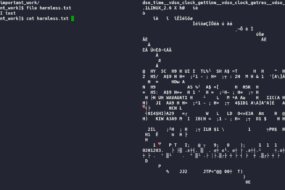
In the ever-evolving realm of self-managed VPS hosting, mastering Docker and its containerization prowess opens up new horizons for tech enthusiasts. This comprehensive guide delves deep into the intricacies of Docker, offering insights into self-managed VPS hosting, cloud VPS pricing, and the quest for the best cloud VPS hosting.
Unraveling Docker: A Primer
Docker, hailed as a game-changer, revolutionizes the way applications are deployed and managed. At its core, Docker utilizes containerization technology to encapsulate applications and their dependencies, ensuring seamless deployment across various environments.
The Dynamics of Self-Managed VPS Hosting
Self-managed VPS hosting grants unprecedented control, and when coupled with Docker, it unlocks unparalleled customization possibilities. This section explores how Docker integrates seamlessly into the self-managed VPS environment, empowering users to wield complete authority over their virtualized infrastructure.
Navigating Cloud VPS Pricing with Docker
Understanding the impact of Docker on cloud VPS pricing is pivotal. Docker’s efficiency in resource utilization can lead to cost savings. However, comprehending the nuances of pricing structures and optimizing Dockerized applications is essential for maximizing these benefits.
Choosing the Best Cloud VPS Hosting with Docker
Selecting the right cloud VPS provider for Dockerized applications involves evaluating various factors. This includes provider reliability, Docker support, scalability, and server locations. A meticulous selection ensures a hosting environment tailored to the needs of containerized applications.
Docker’s Efficiency in Resource Utilization
One of Docker’s key advantages is its efficiency in resource utilization. By sharing the host OS kernel, Docker containers consume fewer resources compared to traditional virtualization. This section elaborates on how Docker optimizes resource usage, contributing to enhanced performance.
Ensuring Security in Dockerized Environments
Security remains paramount in self-managed VPS hosting, especially when leveraging Docker. This section discusses best practices for securing Docker containers, covering topics like image integrity, network segmentation, and container isolation.
Scaling Dockerized Applications
Docker’s scalability is a game-changer for dynamic workloads. This section provides insights into scaling Dockerized applications, exploring orchestration tools like Kubernetes and Docker Swarm that facilitate the management of containerized environments.
Docker Compose: Simplifying Container Orchestration
Docker Compose emerges as a valuable tool for defining and managing multi-container Docker applications. This section provides a comprehensive guide on utilizing Docker Compose to simplify container orchestration and streamline complex application setups.
Monitoring Dockerized Environments
Proactive monitoring is crucial for Dockerized environments. This section introduces advanced monitoring tools compatible with Docker, ensuring real-time insights into container performance, resource usage, and potential issues.
Docker in DevOps: Streamlining Continuous Integration
Docker plays a pivotal role in modern DevOps practices. This section explores how Docker facilitates continuous integration and continuous deployment (CI/CD) pipelines, enhancing collaboration between development and operations teams.
Final Words: Embracing Docker for Self-Managed VPS Empowerment
In conclusion, Docker mastery is a catalyst for self-managed VPS empowerment. From efficient resource utilization to enhanced security and scalability, Docker emerges as an indispensable tool for tech enthusiasts navigating the complexities of VPS hosting.
Commonly Asked Questions
Q1. Is Docker suitable for small-scale applications?
Absolutely. Docker’s lightweight containers make it suitable for applications of any scale, offering flexibility and efficiency.
Q2. How does Docker impact cloud VPS pricing?
Docker’s resource efficiency can lead to cost savings in cloud VPS hosting, making it an attractive option for budget-conscious users.
Q3. Can I use Docker with any cloud VPS provider?
Yes, Docker is platform-agnostic, allowing seamless integration with various cloud VPS providers. Ensure your chosen provider supports Docker in its infrastructure.
Q4. What security measures should I implement for Docker containers?
Implement best practices such as regularly updating images, segmenting networks, and isolating containers to enhance the security of Dockerized environments.
Q5. How does Docker Compose simplify container orchestration?
Docker Compose simplifies the definition and management of multi-container applications by providing a straightforward way to configure and run Docker applications.
Advertisement








